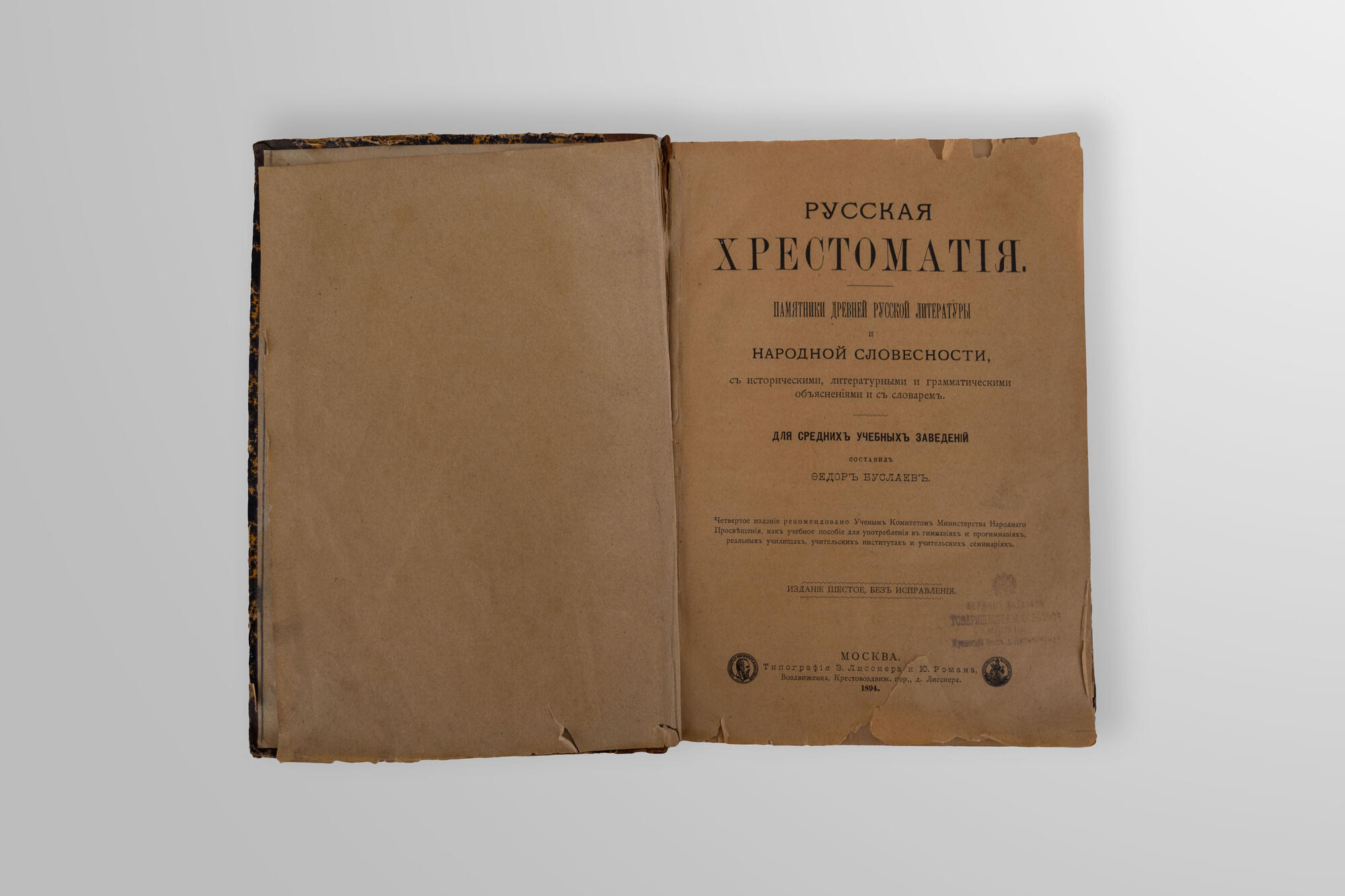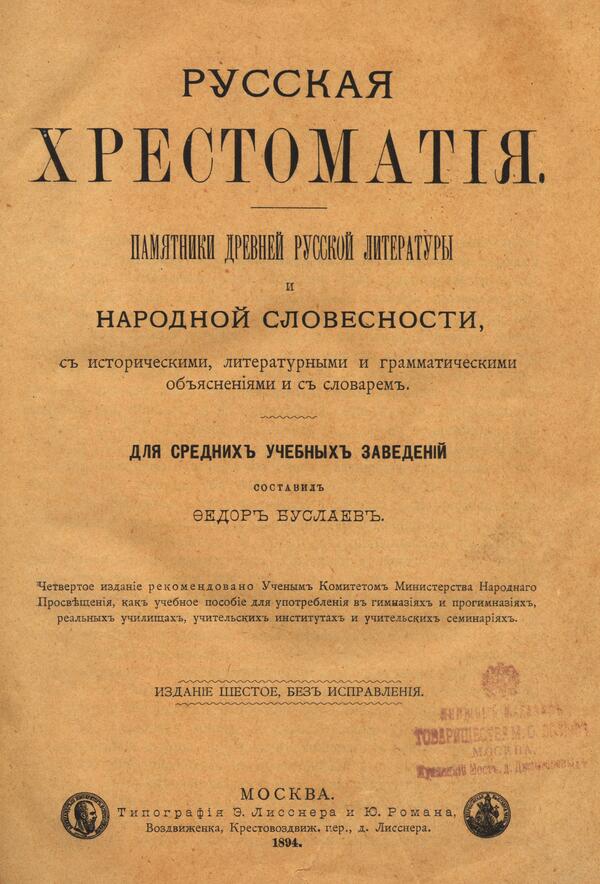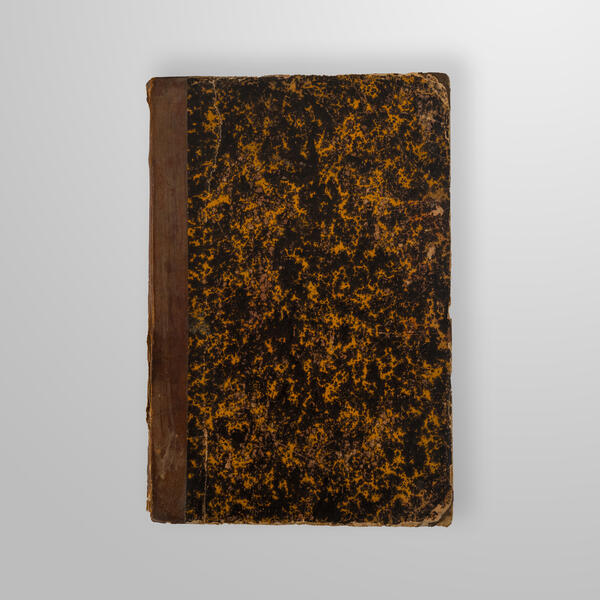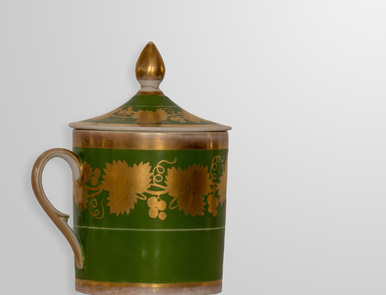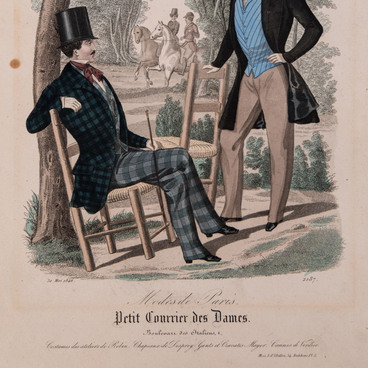“The Anthology” by the Russian linguist Fyodor Buslaev is a short guide containing chronicles dedicated to Russian history in chronological order. These include “Svyatoslav’s Anthology”, “The Tale of Igor’s Campaign”, hagiographies of saints, songs, early 16th-century bylina poems, and excerpts from the “Domostroy” set of rules. The work was compiled as a result of many years of research into Russian culture and language.
Fyodor Buslaev (1818–1897) was one of the founders of Russian linguistics and a member of the St. Petersburg Academy of Sciences. He was born in the town of Kerensk, Penza Governorate. From the age of five, he lived in Penza where he graduated from a secondary school. The researcher recalled, “While living in Penza… under the guidance of [Vissarion] Belinsky and [Yason] Yevtropov… I got to know and fell in love with Russian literature to which I later dedicated my whole life.” His mother Mariya Buslaeva also contributed greatly to the education and personal development of the future philologist.
Fyodor Buslaev was particularly grateful to three of his university teachers: Professor Mikhail Pogodin who got him acquainted with Jacob Grimm’s “German Grammar”, Stepan Shevyryov, and Ivan Davydov who “instructed and advised… [Buslaev] to study Wilhelm von Humboldt’s research into the similarities and differences between Indo-European languages.”
Fyodor Buslaev started teaching in 1838: both in Moscow secondary schools and as a home tutor at the house of the art historian Count Sergei Stroganov. Together with Stroganov, the linguist undertook a two-year journey through Italy, France, and Germany, studying local archaeology and art.
Having returned to Russia, Buslaev started working at the Moscow Alexander College and Moscow University. Teaching historical grammar required broad and extraordinary knowledge.
The first edition of “The Anthology” was a compilation of earlier works in a version adapted for teaching purposes. It was published in 1870.
Apart from his research on the history of the
Russian language, Fyodor Buslaev is recognized for his studies on Russian folk
poetry and Old Russian art, including the most extensive and comprehensive work
on Illuminated Apocalypses in manuscripts of the 16th — 19th centuries.
